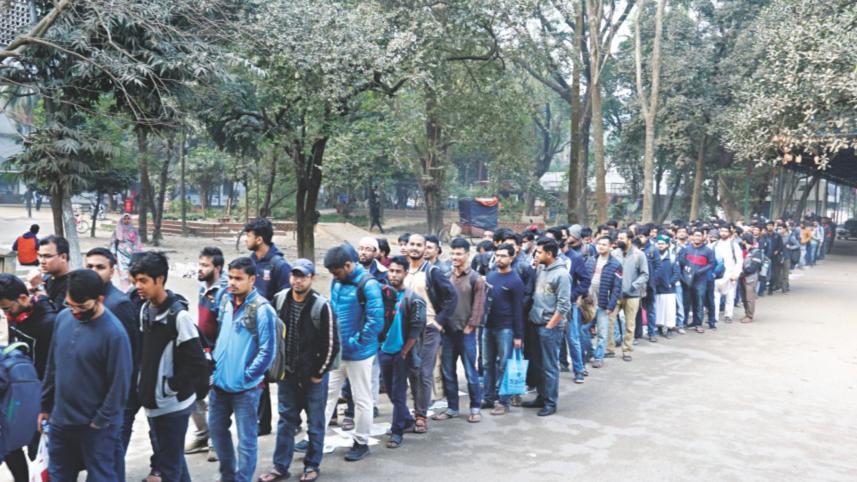Speaks volumes about the state of our higher education

We are concerned at the fact that the libraries in the capital, including the central library of the University of Dhaka (DU), are increasingly being used by students for reading BCS guides rather than for academic purposes. A report published in this daily on March 1 revealed that DU students, mainly those willing to sit for recruitment tests for BCS and other government jobs, start gathering in front of the Central Library gate with their own reading materials, including guides and notebooks, at the break of dawn. Our correspondent visited a number of the city's prominent libraries and found that out of a total of 1,395 readers present in those libraries, 1,355 were reading BCS and other job-related books and guide books.
According to DU statistics, the number of books issued by the two university libraries has declined by 61 percent in the last 10 years. Data shows that the two libraries issued 9,15,425 books to DU teachers and students in 2008-09 academic session, which comes to an average of around 2,500 books a day. However, in 2017-18, the total number stood at 3,52,310, an average of only 965 books a day.
While the fact remains that students' reliance on physical books have declined in this digital age and the vast majority of students nowadays prefer reading e-books for academic purposes, there is clearly another side to this trend—students are losing interest in the value of knowledge. And this is because in our fast-changing job market, a large number of fresh graduates fail to get their desired jobs even after completing their bachelor's and master's degrees with good grades. So, it is only natural that they opt for government jobs, the entry exams of which are also extremely competitive. This explains why students are studying guide books instead of academic ones. However, it is also true that the resources in the university libraries are often outdated, which discourages the students to go there for academic purposes.
While the purpose of higher education should be to generate and share knowledge, such a job-centric attitude of university students is unfortunate. The issue is something our policymakers and the university authorities must pay immediate attention to.



 For all latest news, follow The Daily Star's Google News channel.
For all latest news, follow The Daily Star's Google News channel.
Comments